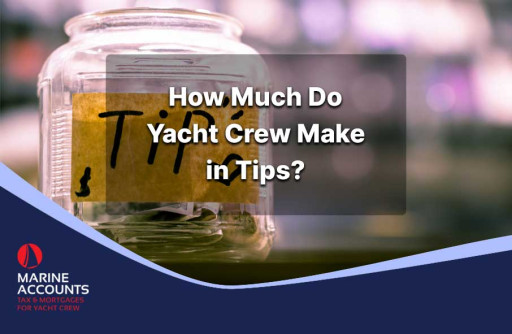Sommelier Training - Should Yacht Crew Attend a Course?
- Authors
-
-

- Name
- Patrick Maflin
-

While a sommelier is mainly the person who serves wine at a restaurant, there’s so many more settings where having sommelier skills can be a huge advantage.
Indeed, a sommelier is a wine professional who has received formal training in all the aspects of wine, including wine service, wine storage, and wine and food pairings.
So with this in mind, would yacht crew such as stewards need sommelier training as part of their role?
We explore this and more in the chapters below.
Chapters
- What is Sommelier Training?
- Sommelier vs Master Sommelier - What’s the Difference?
- How Do You Become a Sommelier?
- Who Should Attend a Sommelier Course?
- What Does a Sommelier Course Cover?
- Why Yacht Crew Should Train as a Sommelier?
- Yacht Crew Sommelier Duties
- Advantages of Being a Qualified Yacht Sommelier
- Conclusion
What is Sommelier Training?
 Students During Sommelier Training
Students During Sommelier Training
To become a sommelier one needs to undergo formal training.
This will allow one to be recognised as a certified sommelier.
The Court of Master Sommeliers is considered to be one of the best courses for those who plan to work as a sommelier in a fine dining establishment.
There is the Level 1 Sommelier Intro, followed by Level 2 Certified Sommelier, and Level 3 Advanced Sommelier.
Following this one will achieve the title of Master Sommelier.
The WSET Level 2 is equivalent to this.
It is also important to have a good knowledge of public health rules and regulations, especially those related to USPH and HACCP.
Sommelier vs Master Sommelier - What’s the Difference?
Often people are not sure what the difference is between being a sommelier and a master sommelier.
The trust is, both are quite different from each other.
In the wine industry, most wine writers and academics tend to opt for the Wine & Spirit Education Trust or the Master of Wine.
These two designations are very popular.
But when it comes to working in the restaurant industry, the Court of Master Sommeliers pathway is the most popular.
The final goal of this track is then the Master Sommelier, also known as the MS title.
If you would like to be considered as one of the best sommeliers in the world, then you would need to work your way up to achieve the title of Master Sommelier.
Achieving this involves passing a series of exams, which include both academic as well as tasting.
One would also need to satisfy the service component required by the Court of Master Sommeliers.
This is not simple and generally requires several years and a considerable amount of preparation.
Furthermore, the final exam is by invitation only!
Both the WSET and the MW wine education tracks are academic in nature.
While they also include in-person classroom tastings, even once the levels of the programs have been completed, one would not have become a certified sommelier.
In simpler terms, you would not have graduated.
This is why the WSET and MW tracks do not specifically require the service component.
This is also why those who receive the MW tend to then become consultants, wine marketers or writers, rather than sommeliers.
The creation of the title of Master Sommelier dates back to around 50 years ago.
The main aim was to improve the standards of the beverage service in dining establishments by placing more importance on better wine and food pairings.
Being a Master Sommelier is regarded as the most prestigious title available to sommeliers.
However it is important to point out that the CMS is a certifying body, and not an academic one.
How Do You Become a Sommelier?
 Sommeliers Inspecting Various Wines
Sommeliers Inspecting Various Wines
Even though anyone who works directly with wine in a restaurant may be called a sommelier, strictly speaking, experience alone will not make one a real sommelier, or at least, one will not be a certified sommelier unless training courses have been followed.
Becoming a sommelier is not a simple case of being able to pour and serve wine appropriately.
Besides a deep appreciation and passion for wine, one will also need to have the drive to undergo the courses, and this entails both studying as well as practice to develop a sensitive palate.
Who Should Attend a Sommelier Course?
If wine is an area that interests you and if you would like to work as a sommelier, then you can consider following a sommelier course to become certified.
Yacht crew members, especially senior yacht stewards and those aiming to become one, should seriously consider attending a sommelier course as this will make them more knowledgeable and better candidates for such roles.
Anyone who works in the hospitality industry, and in the wholesale and retail sectors of the beverage industry can also benefit from following a sommelier course.
What Does a Sommelier Course Cover?
To become a sommelier you will need to pass an examination that is made up of three parts.
As a result the sommelier course will cover the areas which will be examinable.
Primarily one will need to have all the academic knowledge of the WSET, but then there will be specific importance on the service sector.
In fact, the introductory sommelier course will include the Court of Master Sommeliers Tasting Methods and the Court of Master Sommeliers Service Standards.
The course will ensure that the candidates are achieving a thorough understanding of wines, spirits, beer, wine service, major wine growing regions around the world and related topics.
The Deductive Tasting Method of the Court of Master Sommeliers is taught in this course as it is an integral component of the Certified, Advanced as well as Master Sommelier Diploma examinations.
The Master Sommelier exam for example, comprises:
- A verbal theoretical exam which covers wine terminology and terroir and wine regions.
- Blind tasting 6 wines within 25 minutes.
- A practical restaurant service component.
A three year period is granted, during which one will need to pass all the three sections.
Once this three year period has passed, if one has failed any one or more of the components, they would need to start all over again from scratch!
This lengthy period demonstrates that an average candidate generally needs 2 or 3 attempts to manage to pass the full exam.
In some cases there were candidates who required 6 or more attempts to make it.
The Master Sommelier exam is by invitation only, thus one will need to have passed the Introductory exam, the Certified exam and the Advanced Sommelier exam first.
Why Yacht Crew Should Train as a Sommelier?
It’s a very good idea for yacht crew to train as a sommelier, especially those who are regularly serving guests aboard a superyacht.
The dining experience that yacht owners and their guests expect is a central part of their overall time onboard.
Thus, a sommelier will be able to offer a professional service when it comes to wines being served, and food pairings.
This greatly helps to elevate the dining experience and will make the time on board an unforgettable experience for guests.
When receiving such high end service, yacht crew and stewards could make a substantial amount in tips on top of their basic take home pay as a result.
Yacht Crew Sommelier Duties
 Serving Drinks to Guests Aboard a Yacht
Serving Drinks to Guests Aboard a Yacht
- The main duty is taking care of the beverage service to guests, and this needs to be done in a professional and courteous manner.
- Conducting line-up, supervision as well as any training and development of bar servers and mixologists.
- Ensuring that all supplies are readily available, both before and during the service.
- Anticipating the needs of guests and responding adequately.
- Ensuring all wine lists are up to date and that all listed products are available.
- Assisting with the setup and cleaning of bars and restaurants while also maintaining supplies, goods and equipment in accordance with the Brand and Public Health Standards.
- Taking care of inventory processes including moving and stocking products and taking care of requisitions.
- Advance planning and coordination of special events in partnership with beverage brands as well as the yacht team.
- Maintaining a safe environment to avoid any accidents.
Advantages of Being a Qualified Yacht Sommelier
Being a qualified yacht sommelier definitely increases your chances of working on a superyacht.
This is because with the knowledge of a sommelier, and the certification of actually being one, you will be an ideal candidate for such a role.
A qualified yacht sommelier will be able to create a wonderful dining experience for the guests on board.
A sommelier can help to improve the food and wine pairings and thus elevate the overall dining experience considerably.
Indeed, the popularity of qualified yacht sommeliers has increased considerably over recent years, as such a crew member will be playing a central role in the food and beverage service.
The sommelier will also be tasked with sourcing the world’s finest wines and rare vintages, to cater to the preferences of the most demanding of guests.
Conclusion
A sommelier is meant to be knowledgeable as well as provide a positive experience to diners and guests.
If you have a passion for wine, enjoy serving and interacting with diners, and wish to be knowledgeable and certified so as to do this professionally, then you should seriously consider this career path.
Not only will you improve your chances of working on some of the most prestigious superyachts, you’ll also increase your take home pay with substantial tips on top of your take home salary.
And by filling your taxes correctly via the HMRC’s seafarers earnings deduction, it’s highly likely that income will be 100% tax free!
Disclaimer: Any advice in this publication is not intended or written by Marine Accounts to be used by a client or entity for the purpose of (i) avoiding penalties that may be imposed on any taxpayer or (ii) promoting, marketing or recommending to another party matters herein.






